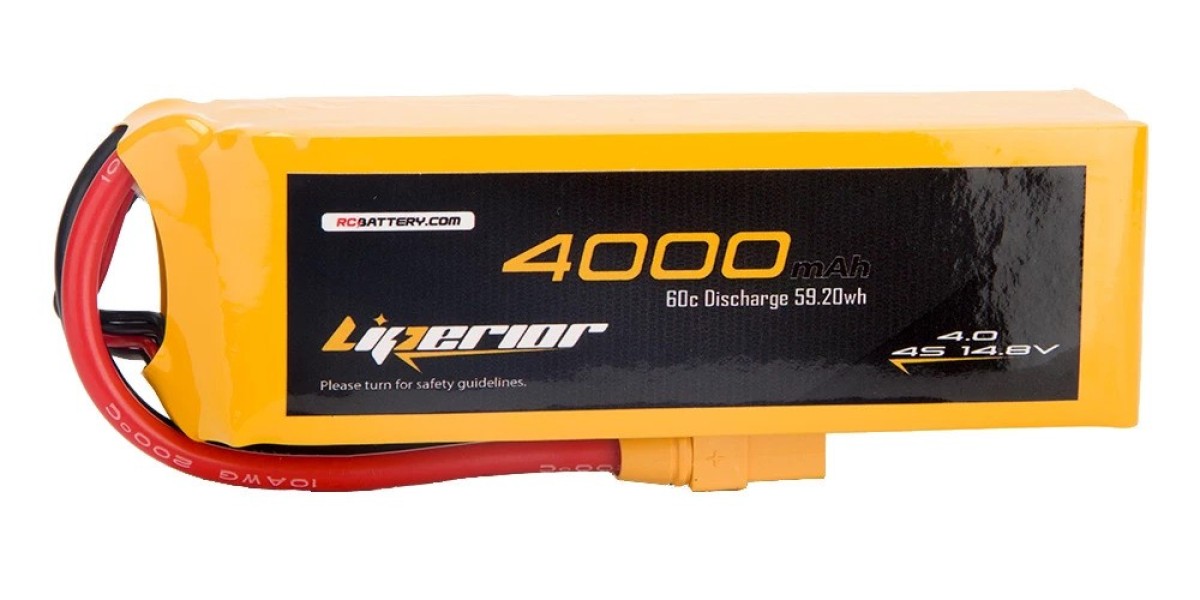In the world of remote-controlled (RC) cars, performance is the name of the game. Whether you're a seasoned hobbyist or just starting, one critical factor that can make or break your RC car's performance is the battery you choose. In this comprehensive guide, we will explore the essential aspects of optimizing your RC car's performance by selecting the right battery.
Introduction
RC car enthusiasts are always on the lookout for ways to boost their vehicle's performance. While upgrading the motor or tires can make a difference, choosing the right battery is often underestimated. The battery serves as the heart of your RC car, providing the power needed to propel it forward, and selecting the right one can greatly enhance your overall experience.
Understanding RC Car Batteries
What Powers Your RC Car?
Before delving into the specifics of RC car batteries, it's essential to understand their role. RC car batteries provide the electrical energy needed to drive the motor and control the vehicle's various functions. Without a reliable and appropriately matched battery, your RC car may not perform optimally.
Types of RC Car Batteries
There are several types of RC car batteries available, each with its unique characteristics. The three most common types are:
- NiMH Batteries (Nickel-Metal Hydride): Known for their affordability and reliability.
- LiPo Batteries (Lithium Polymer): Famous for their high power density and lightweight design.
- LiFe Batteries (Lithium Iron Phosphate): Chosen for their durability and safety features.
In the following sections, we will explore these battery types in more detail and help you choose the right one for your RC car.
Factors to Consider
When selecting an RC car battery, various factors come into play, and it's crucial to consider each one to optimize your vehicle's performance.
Capacity and Runtime
Battery capacity is measured in milliampere-hours (mAh) and directly impacts how long your RC car can run on a single charge. Higher capacity batteries provide longer runtimes, but they can also be heavier.
Voltage and Speed
Voltage, measured in volts (V), determines the speed of your RC car. Higher voltage batteries generally result in faster speeds, but they may require motor and electronic upgrades to handle the increased power.
Weight and Balance
The weight of the battery affects your RC car's balance and handling. It's essential to strike a balance between a high-capacity battery and one that won't make your car too heavy to maneuver effectively.
Battery Chemistry
Understanding the chemistry of RC car batteries is crucial in making an informed decision.
NiMH Batteries
NiMH batteries are known for their reliability and affordability. They have a moderate energy density and are a good choice for beginners or those on a budget.
LiPo Batteries
LiPo batteries are prized for their high energy density and lightweight design. They offer impressive power and runtime but require careful handling to prevent damage or accidents.
LiFe Batteries
LiFe batteries are among the safest options, with a focus on durability and longevity. They have a lower energy density but are known for their robustness.
Choosing the Right Battery
Selecting the ideal battery for your RC car involves considering several key factors.
RC Car Type and Size
The type and size of your RC car play a significant role in determining the battery that suits it best. Smaller, lighter cars may require different batteries than larger, more powerful models.
Discharge Rate (C-Rating)
The discharge rate, often denoted as the C-rating, indicates how quickly the battery can release its energy. Higher C-ratings are better for high-performance RC cars.
Connector Types
Different RC cars may use various connector types. Ensuring compatibility between your battery and car's connectors is vital.
Maintenance Tips
Proper battery maintenance is essential for longevity and performance.
Charging and Discharging
Follow the manufacturer's recommendations for charging and discharging your battery to prevent overcharging or deep discharges, which can damage the battery.
Storage and Care
Storing your RC car batteries in a cool, dry place and regularly inspecting them for damage are essential practices to ensure their longevity.
Performance Enhancements
To take your RC car's performance to the next level, consider battery upgrades and monitoring systems.
Upgrading Your Battery
Upgrading to a higher-capacity or higher-voltage battery can provide a noticeable boost in speed and runtime.
Monitoring Systems
Invest in voltage alarms and battery monitors to keep track of your battery's health during operation.
Safety Measures
Safety should always be a top priority when dealing with RC car batteries.
Avoiding Overheating
Keep an eye on the temperature of your battery during use. Overheating can lead to performance issues and safety hazards.
Battery Handling Precautions
Handle your RC car batteries with care, avoiding punctures, short circuits, and physical damage.
Eco-Friendly Options
For environmentally conscious enthusiasts, there are eco-friendly battery options.
Nickel-Zinc (NiZn) Batteries
NiZn batteries are rechargeable and offer a more eco-friendly alternative to some traditional battery chemistries.
Lithium Iron Phosphate (LiFePO4) Batteries
LiFePO4 batteries are known for their longevity and safety, making them a sustainable choice.
Budget Considerations
Balancing your budget while ensuring quality is essential when selecting an RC car battery.
User Reviews and Recommendations
Hearing from other RC car enthusiasts and experts can provide valuable insights into choosing the right battery.
Conclusion
Choosing the right RC car battery is a critical decision that can significantly impact your vehicle's performance. By considering factors like capacity, voltage, and chemistry, as well as your specific RC car type and budget, you can make an informed choice that enhances your RC car experience.
FAQs
Q1: What is the lifespan of an RC car battery?
The lifespan of an RC car battery varies depending on factors like usage, maintenance, and the type of battery. On average, well-maintained batteries can last anywhere from 1 to 3 years.
Q2: Can I use a LiPo battery in any RC car?
LiPo batteries are versatile but may not be suitable for all RC cars. Make sure to check your car's specifications and compatibility before using a LiPo battery.
Q3: How do I know when it's time to replace my RC car battery?
If you notice a significant drop in runtime or if the battery no longer holds a charge effectively, it's a sign that it may be time to replace it.
Q4: What's the best way to store my RC car batteries during the offseason?
Store RC car batteries in a cool, dry place, and make sure they are not fully charged or discharged. Check them periodically to ensure they remain in good condition.
Q5: Are there any safety precautions I should take when charging my battery?
Yes, always charge your RC car battery in a fireproof location and use a charger designed for your battery type. Never leave a charging battery unattended.
In conclusion, optimizing the performance of your RC car involves making an informed choice when it comes to the battery. By considering the factors outlined in this guide and prioritizing safety and maintenance, you can ensure that your RC car delivers thrilling performance every time you hit the track.








